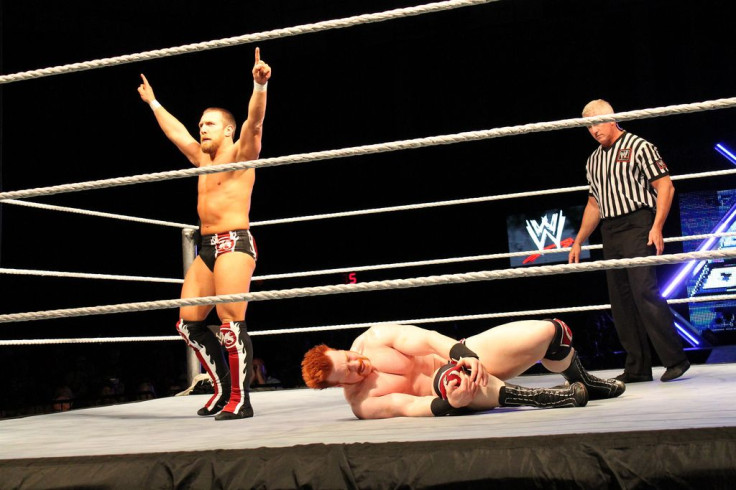Daniel Bryan’s WWE Retirement Tied To Concussions, Seizures; Football Isn’t The Only Problem

Football may be one of the most notorious sports for players sustaining concussions, but it's not the only activity that can result in severe head trauma. Last year, professional wrestlers Vito LoGrasso and Evan Singleton made the decision to sue World Wrestling Entertainment (WWE) over a number of traumatic brain injuries they sustained during their wrestling years.
Now WWE superstar Daniel Bryan says his decision to retire from the sport was the result of an unhealthy number of concussions and post-concussion seizures that he had suffered throughout his 16-year career. Bryan announced his retirement on Twitter just before the February 8, 2016 episode of RAW. He had already been on medical leave from the WWE since April 2015 due to the extent of his injuries.
Due to medical reasons, effective immediately, I am announcing my retirement. Tonight on Raw, I'll have a chance to elaborate. #gratitude
— Daniel Bryan (@WWEDanielBryan) February 8, 2016
Following his retirement announcement, Bryan sat down for an interview with ESPN’s, “Off The Top Rope.” He admitted to being diagnosed with 10 concussions by the age of 34, but didn’t doubt there were more. A subsequent electroencephalogram (EEG) revealed that he was suffering from swelling of the brain and an acute brain lesion. Bryan had also undergone surgery back in May 2015 to fix a nerve in his neck, something he later revealed was tied to his concussions.
Although, in general, more students flock to sign up for the freshman football team than any other sport, the NFL has finally started to make legitimate steps to improve player safety (better late than never). Thanks to a mixture of steroids, prescription painkillers, other illegal drugs, and finishing moves off the top rope, professional wrestling is often considered America’s most dangerous sport.
Medical documents, autopsies, and police records gathered by USA Today revealed that among the 1,000 active wrestlers between 1997 and 2004, at least 65 have already died. Some of the more notable deaths tied to pro wrestling, Randy “Macho Man” Savage, at 58, and James “The Ultimate Warrior” Hellwig, at 54, were tied to massive heart attacks.
In spite of the unfortunate circumstances surrounding his retirement, Bryan is not harping on the past or blaming the WWE for his life choices. Instead, he’s using his story to warn the younger generation about looking out for their own safety when it comes to sports injuries.
“One of the mistakes the prior generation has made, including myself because we weren’t aware, was if you get a concussion you need to record it. Because one of the worst things that you can do is get a concussion and then go back to doing a contact sport before your brain is really healed. That’s especially true for younger people. There’s this mentality within sports and especially within sports like football, with wrestling, with fighting, with all that kind of stuff — ‘No, I’m going to tough it out, it’s just a ding.’ If you’re a competitor, you have that in you to feel that. But you have a responsibility to yourself, your family, your friends to report it, just to help yourself.”
https://t.co/L9OBF2qCxL @WWEDanielBryan talks concussions and how many.
— Jonathan Coachman (@TheCoachESPN) February 10, 2016



























